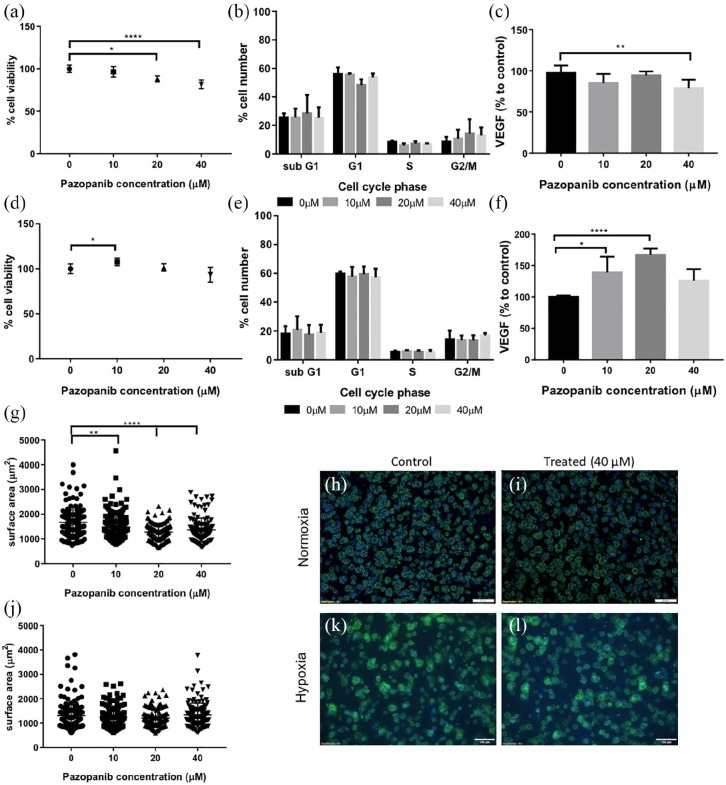Figure 5.
Mature tumouroids, manufactured using CAKI-2 cells, treated with Pazopanib. Tumouroids were exposed to Pazopanib for a total of 120 h on day 10 after manufacture, in normoxia or hypoxia. Normoxia (20% O2): a, b, c, g, h, i; hypoxia (1% O2): d, e, f, j, k, l. (a) Cell viability measured using CellTiter Glo. (b) Cell cycle analysis of treated tumouroids by flow cytometry. (c) VEGF levels in the supernatant of treated tumouroids measured using ELISA, shown as a percentage to untreated tumouroids. (d) Cell viability measured using CellTiter Glo treated with Pazopanib in hypoxia (1% O2). (e) Cell cycle analysis of treated tumouroids by flow cytometry. (d) VEGF levels in the supernatant of treated tumouroids shown as a percentage to untreated tumouroids. (g, j) Surface area of spheroids following treatment in (g) normoxia or (j) hypoxia demonstrating treatment effect on spheroid size. (h, i, k, l) Representative fluorescent images of cancer spheroids within mature tumouroids for (h, k) control and (i, l) treated tumouroids under (h, i) normoxia or (k, l) hypoxia (Phalloidin staining, DAPI counterstain; scale bar = 100 µm)
*p < 0.05; **p < 0.01; ****p < 0.0001, Kruskal–Wallis with Dunn’s post hoc analysis.

